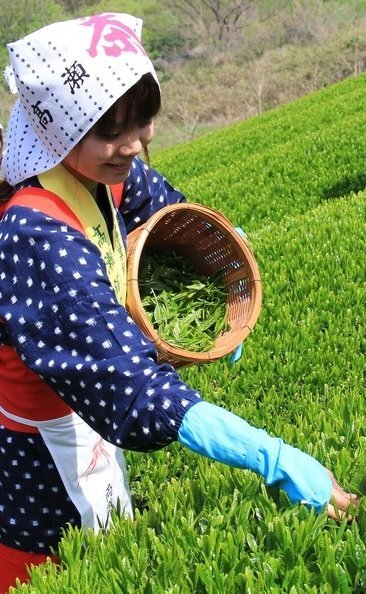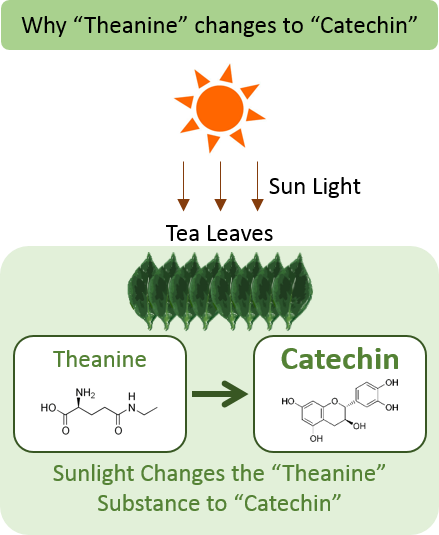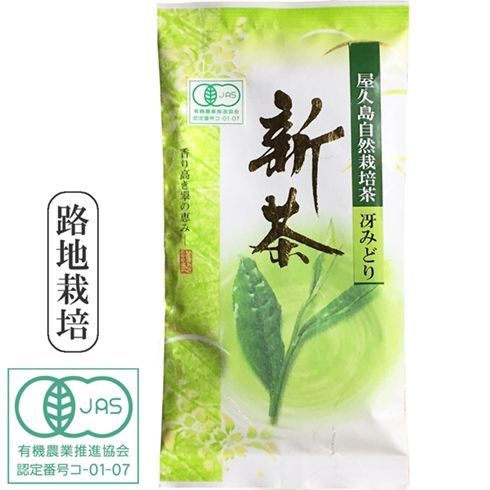The effect of green tea on the human brain, how to choose good green tea?
Green tea is a kind of unfermented tea (unoxidized) from the leaves of Camellia sinensis. It is believed that green tea is the oldest type of man-made tea - Chinese researchers claim that green has been known for over 5000 years.

Green tea is processed using either artisanal or modern methods: sun-drying or pan-firing are common artisanal methods. Machine drying, tumbling, or steaming are common modern methods.
Thermal treatment of tea leaves is used to stop the oxidation process - thus tea daintains the original phytochemical composition, thus clearly distinguishing it from the fermented tea. Thanks to the early-stage heat treatment, the leaves retain a green color - in the case of Japanese teas, even the brew has a green color, which is related to the different processing of the leaves using steaming.

(hand-picking tea leaves in Japan)
Ingredients
Green tea contains:
- Catechins 9 - 14% in dry leaves; For tea from the first harvest
- Amino acids / 1-teanine 20-30% in dry leaves*
- Theine (caffeine) 1.5 - 3.5%
- Fats 4 - 5.3%
- Fiber 10 - 18%
- And vitamins in A, C, E, B1, B2, niacin in different proportions
What is the difference between green tea and other teas?
Green tea is rich in l-theanine, catechins and theine, which is responsible for stimulating the nervous system. In fermented tea, l-theanine is present in trace amounts and the concentration of catechins is significantly lower than it is in non-oxidized tea. It is the synergy of l-teanine with theine that green tea has a remarkable effect on the human brain.
Effect of green tea on the human brain - spatial memory
Research by Chinese scientists shows that green tea catechine EGCG (epigallocatechin gallate) supports learning ability and improves spatial memory. Researchers suggest that EGCG can stimulate the formation of new nerve cells, thereby improving cognitive function in the brain.
Studies have shown that epigallocatechine Galusan contained in green tea promotes the formation of progenitor cells that have the capacity to differentiate specific types of neural tissu, including neurons.

(brain scan before and after drinking tea)
In the in vivo study, mouse mice were found discovering in the maze of visible platforms, and for the following week were seen as rodents mastering the art of finding the platform. During observation, researchers noted that animals administered EGCG needed less time to find their way to the platform. Improvements in object recognition and spatial memory were observed.
The above experiment proves that consumption of green tea improves cognitive memory functioning and positively influences the processes occurring in the hippocampus.
Tea improves working memory
Researchers at the University of Basel were the first to demonstrate that green tea is beneficial for the brain, improving cognitive function, especially working memory. A team of researchers from the University of Basel, led by professors Beglinger and Borgwardt, found that green tea extract strengthens the efficiency of nerve connections between different areas of the brain, directly affecting the cognitive improvement of cognitive abilities.
The study was conducted by a group of healthy men, divided into two subgroups: the first one was 27.5 grams of liquid green tea extract and the other was a plain drink. Subsequently, participants entered the memory tests during which their brains were imaged by magnetic resonance imaging.
The study found that men who consumed green tea extract had better communication between the parietal and frontal cortex. The group consuming green tea extract was quicker to solve the test than the control group.
prof. Borgwardt stated, "The results of our team show that green tea can increase short-term synaptic plasticity of the brain."
Green tea has anti-depressant effect, improves mood
It has been a long-held belief that consumption of green tea improves mood and minimizes the symptoms of depression. The Buddhist monks had been drinking tea for 1,500 years, were aware of this, and filled the spirit with positive energy during the many hours of meditating during which no meals were eaten, and the only way to warm up the body was to apply hot stones to the stomach to quench hunger. Tea helped to suppress hunger in long term meditation, warmed up, and lifted up the weakened monks.
What has been known for a long time has been confirmed by a group of researchers from Tohoku University in Sendai. A study conducted by Dr. Kaijun Niu showed that drinking 4 cups of green tea can reduce melancholy by 43%.
A group of 1058 Japanese seniors with symptoms of depression in relatively good health were examined, followed closely by their eating habits and daily intake of green tea.
488 participants drank 4 cups of tea a day and 288 others, 3 cups - both groups showed significantly better mood and less frequent symptoms of depression than those who consumed less tea.
Animal model studies confirm that l-teanine contained in green tea raises the level of dopamine concentration in the brain, improving mood and alleviating symptoms of depression.

Researchers noted that consumption of other types of tea (fermented tea, black, oolong, red) did not produce a similar effect. They came to the conclusion that amino acid - teanine contained in green tea - is responsible for the improvement of mood and tranquility.
How to choose good tea? Which variety has the greatest health potential?
If we want to take advantage of the extraordinary properties of green tea we first have to realize that its health healthy potential are closely related with quality of the tea that we buy.
By buying cheap tea in bags named "green tea bags" we can not count on the wealth of catechins and amino acids, because such tea is usually extremely sterile from the nutrients and the desired phytonutrients.
What to look for when we are choosing a tea?
Definitely an important determinant is price, but not only, we have to consider several aspects:
- perhaps a few of you are aware, but green tea is thousands of different species and subspecies - even within the same region, such as the Yunnan province of China or Japanese Kagoshima - were thousands of different varieties and species are produced
- type of package
- country of origin
- Details of the date of harvest, variety of the tea plan (there are several thousand varieties, as it is in wine grapes)
- Place of purchase - do not be fooled, we will not find good tea in walmart stores or in a typical grocery store, buying good tea is a real challenge.
From my studies during over 10 years of experience as a tea connoisseur, gourmet and researcher, it appears that most catechins, minerals and amino acids are found in japanese teas, which are significantly different from teas from other parts of the world, mainly due to their different production methods and also because of the volcanic soil. In the case of japanese green tea, you should pay special attention to: Sencha, Karigane (tea with stems), Matcha (powdered tea) and Gyokuro (shaded tea).

The analysis of Japanese scientists confirms that most catechins (EGCG) are contained in a tea called sencha. Sencha (the most common type of green tea in Japan) due to the high exposure of the leaves to sunlight => The amino acids contained in the leaves transform into catechins under the sun. The higher content of catechins / tannins, the higher bitterness of the infusion and vice versa, the more amino acids and the infusion is sweeter and more abundant in the so called "umami" - the fifth taste as the Japanese call it; Umami is most often associated with sea-flavored seaweed, seaweed, grassy notes, but with a more sweet profile.

(my favorite, japanese sencha)
Japanese tea is characterized by good, airtight packaging (often vacuum packaged in order to preserve freshness of tea); The typical shelf life is about 1 year, after opening from 30 to 60 days.
The rule is: the more fresh the tea is, the better its quality. First harvest begins early / late spring and during this period the best tea is available on the market. Experienced gourmets will easily recognize this year's harvest.
In summary: the best choice of tea is the first (or second flush) of the current year or with a minimum of 6 months validity on the packaging, hermetically sealed without air, a good supplier should mark the place and date of harvest; marking variety of tea plant is good practice, but not required.
Where to buy tea that meets the above criteria?
Good local tea houses, especially tea/herbal shops, online tea shops, ebay, Asian tea shops offering shipping to Europe.

(Japanese packaging)
How much a decent tea should cost?
Prices point starts at about 8 $ per 100 grams., but the best green tea in limited editions can be priced at $ 50 to $ 100 for 50/100 grams. It depends on how much you can spend. Let's assume that for 10 - 15 $ we can get really decent tea, which meets the above criteria, and 2 - 4 cups of such infusions can actually improve our mind functioning, thus positively influencing our mood and general health.
Online tea vendors
Here are some good online stores where you can buy good japanese green tea:
- http://shop.ippodo-tea.co.jp/kyoto/shopf/index.html
- https://www.o-cha.com
- http://www.yuuki-cha.com
- https://www.chadoteahouse.com/sale-items.html
PS
If you are looking for other good sources of green tea, do not hesitate to ask, I will be happy to help you. :)
=== === === === === ===
sources:
- http://ajcn.nutrition.org/content/83/2/355.full
- https://www.shizentea.com/blogs/matcha-vs-green-tea-sencha/benefits-of-matcha-green-tea
- https://www.itoen.co.jp
- https://www.unibas.ch/en/News-Events/News/Uni-Research/Green-Tea-Boosts-Your-Brain.html
- https://www.ncbi.nlm.nih.gov/pmc/articles/PMC4020750/
A pretty interesting post on tea, the effort you put into this shines through. Though I do wish you would have included some citations for your images and such.
Excellent post!!!
Upvoted and re-steemed!!
Keep it up!
Have a fantastic weekend!
Steem on,
Mike
@tomosan... your post was 'Matcha' appreciated. ;)
The Fountain Longevity Circle is following you!
Really great info here, thanks for sharing this:) Upvote, followed and resteemed.
Tomosan, Thanks for the great information on Green Tea. When I am at a Sushi Restaurant, Green Tea is my preferred drink. Going forward, I will drink more green tea on a daily basis and cut back on my coffee. Followed, Upvoted and Resteemed.
Wow, you obviously put a lot of effort into this post. Lots of stuff I didn't know in this as well.
Glad I'm a follower.
Great post! The list of vendors is definitely useful.
There is some interesting research into the phytochemicals in plants. Some of these phytochemicals up-regulate longevity genes and some of them are in green teas. Some berry and seed extracts can extend life span 28%. Ive resonantly become interested in things found in food and herbs that up-regulate longevity genes. Ive started writing about what I'm finding so if you are interested here are the links.
https://steemit.com/technology/@tombot/can-biohacking-double-lifespan-1-0
https://steemit.com/health/@tombot/can-biohacking-double-lifespan-2-0